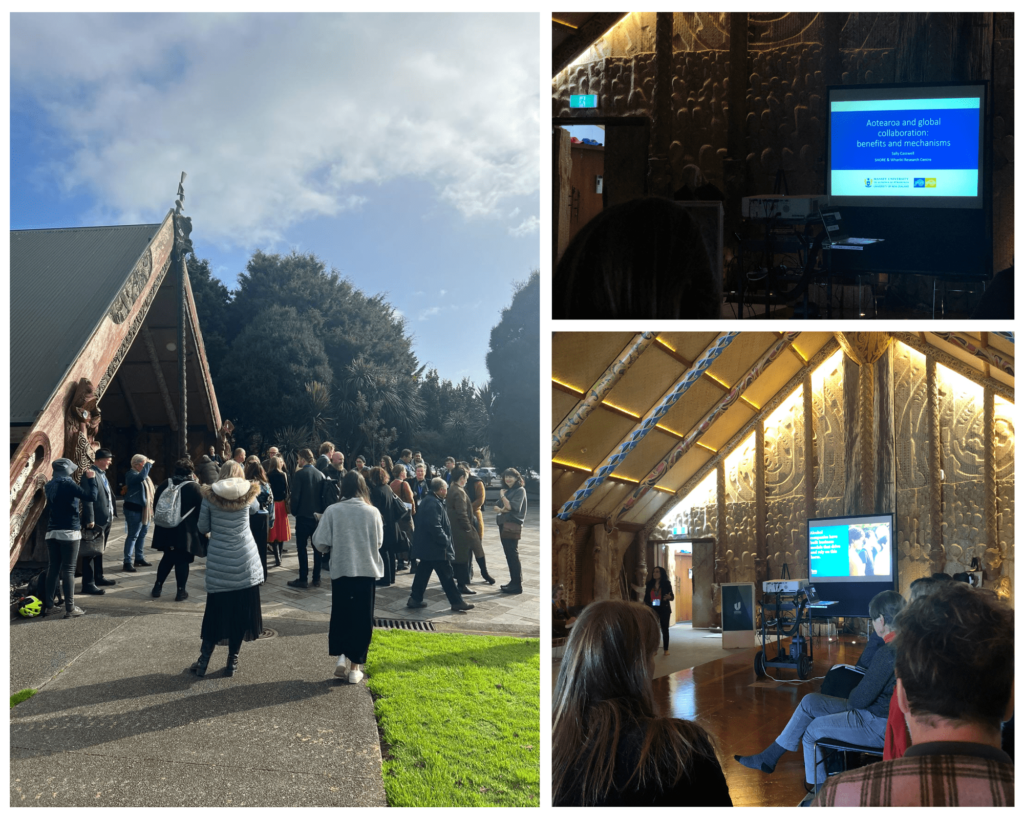
Ashlynn Ale is a Systems Innovator for Healthy Families South Auckland (The Cause Collective). A Samoan, she was born and raised in Māngere, and has been working on the alcohol harm reduction kaupapa for HFSA for the past two years. This opinion piece is a reflection of the current alcohol harm landscape after attending the Defining Our Future – Alcohol Policy and Planning Forum at Te Noho Kotahahitanga Marae – Unitec, Mt Albert on 17 & 18 July 2023.
It’s no secret that alcohol harm is an issue in New Zealand. Whether it’s the recent release of stats confirming alcohol to be the most harmful drug in Aotearoa, taking a stroll past some of the cities’ nightlife hotspots on a Saturday evening or the casual acceptance of our drinking culture – we know, we see it and in large part- we’ve accepted it. But does it need to be this way?
Lack of Māori and Pasifika
Alcohol Healthwatch recently held the Defining Our Future – Alcohol Policy and Planning Forum (The Forum) to help determine a collective approach to reducing alcohol harm in Aotearoa. This convened a number of people to discuss and plan a way forward to improve our bleak alcohol landscape. Much of what was presented wasn’t news to those of us that live and work in the underserved communities most impacted by the harms of alcohol. If anything, it highlighted the distinct lack of Māori and Pasifika representation within the regulatory space (and working to address alcohol harm), despite feeling the effects of alcohol so keenly within our aiga (families) and wider community.
The irony wasn’t lost on me that the forum was held on a Marae despite the fact that Māori men face a death rate from alcohol harm twice that of non-Māori. Although it was heartening to have so many like minded individuals in one space, we cannot do it alone. It is on the system (which we are a part of) to create systemic and legislative changes to effect equitable outcomes for all.
South Auckland – land of alcohol stores
As a Māngere girl the desire to make change feels even more critical. In recent times, the likes of a liquor store on Wickman Way, Māngere having its license renewed despite the groundswell of community opposition leaves local people feeling defeated. The burden should not be on the community to improve outcomes when there is a system that can, and should. Some of the statistics presented at The Forum were around outlet density. For example, an alarming fact raised was that across Aotearoa there are 63 premises per 100,000 people serving alcohol, but for the most deprived areas this figure shoots up to 90 premises. These areas in Auckland (primarily in South Auckland) are home to some of the largest Māori and Pasifika populations in the country. The issue here is not the people, it is structural, intentional and by design.
The personal responsibility of individuals plays a part, sure, but how is it fair that the most vulnerable communities live, learn, work and play in places where a liquor store on every corner is an accepted norm? There are multiple issues that need to be addressed to even begin turning the tide on alcohol in South Auckland, and after attending The Forum, I’m affirmed that these are few key actions that could make a positive difference to the reality we want to overturn for our people.
Key actions to make a positive difference
– More intentional inclusion of Māori in the decision-making process. The addition of a Te Tiriti clause in the Sale and Supply Alcohol Act 2012 would be a start. Also for Mana Whenua to be included as part of the consultation process for the Local Alcohol Policy (LAP) so they are involved in developing local alcohol policies would be a substantive way of improving outcomes.
– More Pasifika representation. Given the density of alcohol outlets in the most deprived areas, we need to see more Pasifika people within regulatory bodies such as District Licensing Committee to represent local communities who are affected by the social, economic and environmental impacts of the harms fuelled by alcohol.
– The need for a coordinated approach between actors in the system.There are so many people out there across Aotearoa that are doing good work, in South Auckland this has been the domain for groups such as Communities Against Alcohol Harm and inspired individuals and communities opposing alcohol licenses. However, now is the time for us to band together to push for the change we so desperately need. Community opposition is good, but it is not enough on its own- and they shouldn’t shoulder this themselves.
Sure, we’re all familiar with the phrase ‘it’s not the drinking, it’s how we’re drinking’ but why can’t this be reimagined to ‘it’s not the thinking, it’s how we’re thinking’? We should call on the system to rethink the way we treat alcohol and not accept the status quo of poor outcomes for people in our communities. We have an accepted culture of drinking that many of us know is horrific- but do we also have a culture of accepting death and sickness for our most at risk whanau? In any case, we cannot wait for more people to die, more hospitals to fill up, and more trauma to be placed on our communities and tamariki. How much more will the system tolerate before it makes meaningful change, and when? The answer, simply put,we cannot tolerate anymore, and it must change, now!
Feel free to email Ashlynn Ale at [email protected] if you have any questions/queries.